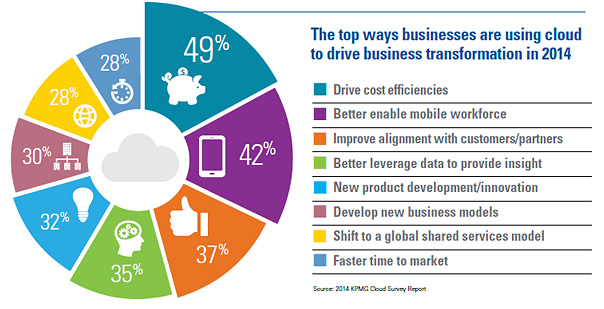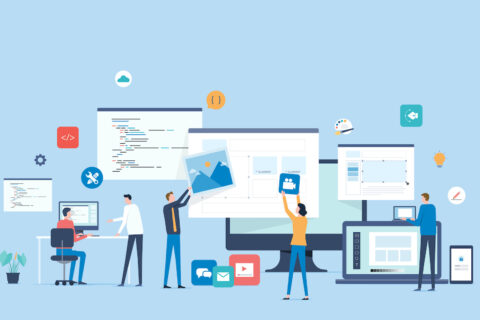Enterprise resource planning (ERP) software, traditionally viewed as an enterprise solution, is the ultimate application for any business – both large and small.
As a business owner, when you step back and think about all of the various tasks essential to running a business (i.e., product development, inventory and order management, accounting, human resources, customer relationship management (CRM), and beyond – ERP brings it all together. ERP software offers a robust and complete system to streamline processes and information across an entire business.
Boost Productivity and Profitability
Many small business owners are discovering that ERP is useful because of its ability to manage the flow of information. This helps leaders make data-driven business decisions and “monitor and manage supply chain, procurement, inventory, finance, product lifecycle, projects, human resources and other mission-critical components of a business through a series of interconnected executive dashboards” (TechTarget). Streamlining the back-office can things lead to increased productivity, effectiveness and profitability.
But in the past few years legacy ERP providers have earned a reputation for time-consuming deployments, costly maintenance, outdated user interfaces, and general inflexibility.
Like any industry, the market is changing due to the adoption of new technologies and devices. ERP providers are now forced to move from a rigid outlook to more flexible, cloud-based and user friendly offering.

Consumer applications and social platforms have transformed the way people think about software and business applications. Businesses are looking for faster deployments and less maintenance, therefore the use of cloud solutions—especially in the form of software as a service (SaaS)—is on the rise.
Cloud ERP Adoption On the Rise
Today’s businesses seek out readymade platforms they can build on, with the least effort in product development. InformationWeek’s 2014 State of Cloud report found that 64% of companies (with 50 or more employees) are using some form of cloud technology and have at least one SaaS app in the mix.
Research firm Gartner predicted that at least 30% of service-oriented businesses will move the majority of their ERP applications to the cloud by 2018.
PwC is predicting that by 2016, investment in SaaS solutions will more than double to $78B while investment in traditional ERP systems will decline over 30% to less than $15B. Their recent analysis of ERP on Cloud adoption shows that net new license revenues for traditional ERP systems have been declining since 2013 to a level that has already been surpassed by global revenue from cloud-based SaaS solutions.
Why Cloud ERP Matters
ERP on the cloud benefits businesses in multiple ways, from providing app scalability and flexibility to reduction of hardware costs and time to get up and running. Cloud computing, especially the SaaS model, has made it easier for small and medium companies to acquire cloud ERP without the bloated up-front expense.
When searching for the right ERP on Cloud solution for your business consider this criteria: Is it: modular and agile, on-demand deployment, public or private cloud deployment, user friendly and intuitive, compatible with all devices, customizable without coding, scalable, quick to implement and low maintenance?
Consider the potential of cloud ERP and you’re on your way to a faster, smarter and more scalable business.
This article has been edited and condensed.
Gligor Chavdarov is a Marketing Strategist at VIENNA Advantage, a German-based software company that provides innovative and future-oriented open source solutions such as: ERP (enterprise resource planning systems); CRM (customer relationship management systems); DMS (document management systems); application development framework; POS (point of sale) and more. Connect with @viennaadvantage on Twitter.
© YFS Magazine. All Rights Reserved. Copying prohibited. All material is protected by U.S. and international copyright laws. Unauthorized reproduction or distribution of this material is prohibited. Sharing of this material under Attribution-NonCommercial-NoDerivatives 4.0 International terms, listed here, is permitted.













